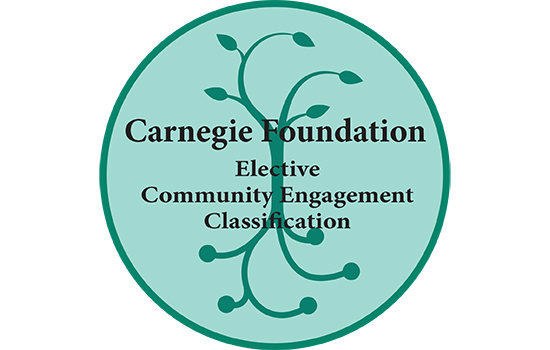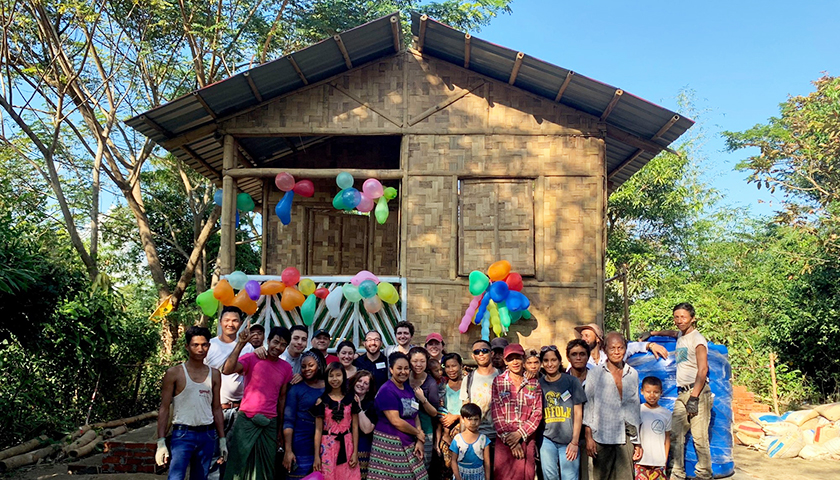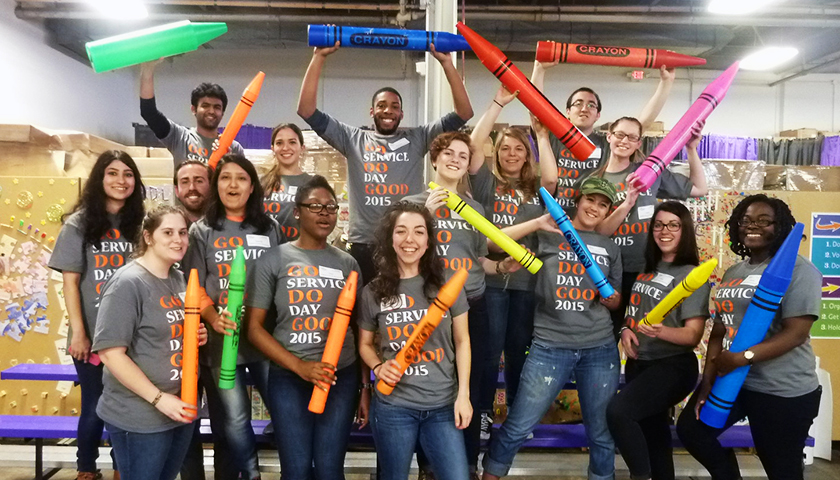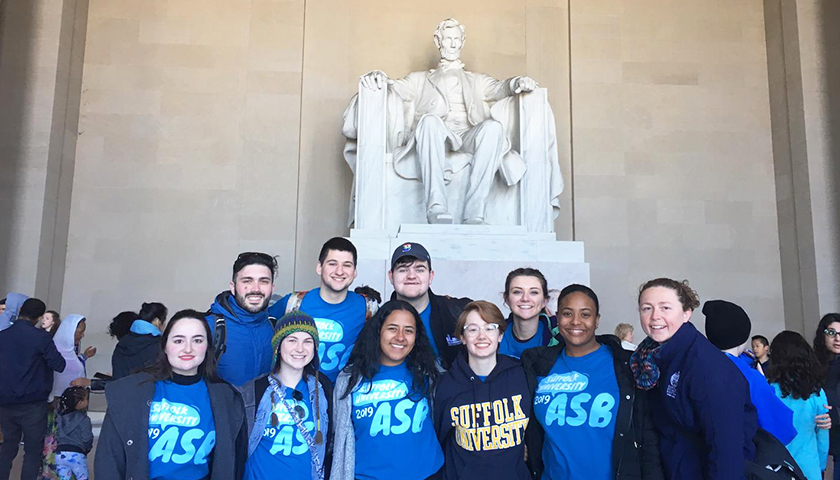Suffolk’s ongoing commitment to community and service has earned the University its second Carnegie Community Engagement Classification, a designation held by only 359 higher education institutions nationwide.
The classification, recognizes “dynamic and noteworthy community engagement,” which Suffolk University fulfills through the efforts of a vibrant Center for Community Engagement and robust Law School clinical and pro bono programs. Faculty research throughout the University also benefits the public good. And in a university that emphasizes the value of experiential education, faculty and staff embrace service learning as an essential dimension of the Suffolk experience.
“Creating opportunity has been ingrained in the Suffolk story right from the start,” said Suffolk University President Marisa Kelly, a champion of community engagement who ensured that service-learning was incorporated into a strategic plan formulated this past year. “We strive to create experiences that benefit students and communities alike. This spirit of service is something our graduates carry with them throughout their lives.”
The University first received the Community Engagement Classification in 2010.

Strong commitment
The report prepared for its 2020 reclassification demonstrated an ever-deepening commitment to community engagement, which the Carnegie guidelines describe as “the partnership (of knowledge and resources) between colleges and universities and the public and private sectors to enrich scholarship, research, and creative activity; enhance curriculum, teaching, and learning; prepare educated, engaged citizens; strengthen democratic values and civic responsibility; address critical societal issues; and contribute to the public good.”
In evaluating its community engagement performance for Carnegie review, the University cited activities ranging from investigating housing discrimination in Boston to building homes internationally through Habitat for Humanity; from working with underserved students to make them college-ready to tutoring young children through the JumpStart program. Voter registration drives, published research on service learning, and public forums on current affairs also were cited.
The classification study looks at data related to community engagement, and a striking bit of evidence showed that, while self-evaluations as students enter the University indicate they are at or under the mean in engagement skills, graduating students have developed these skills to a level at or higher than peer institutions.


The current Carnegie classification extends through 2026. A letter announcing Suffolk’s selection cited the University’s “excellent alignment among campus mission, culture, leadership, resources, and practices that support dynamic and noteworthy community engagement.”



